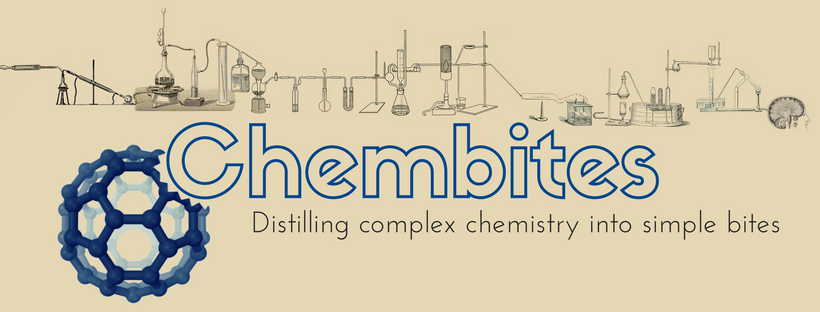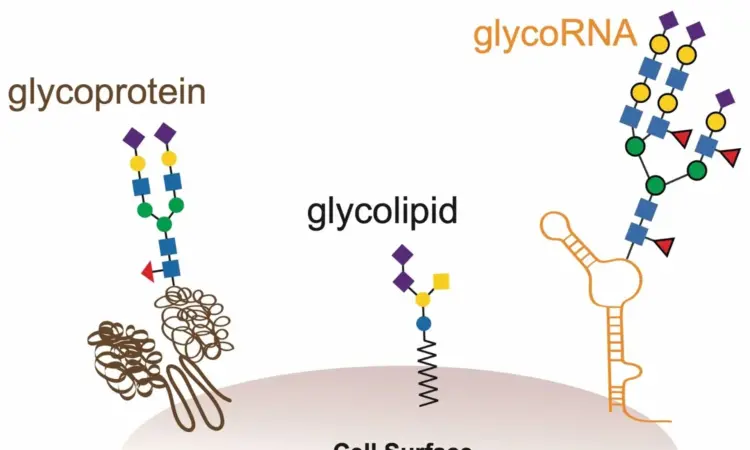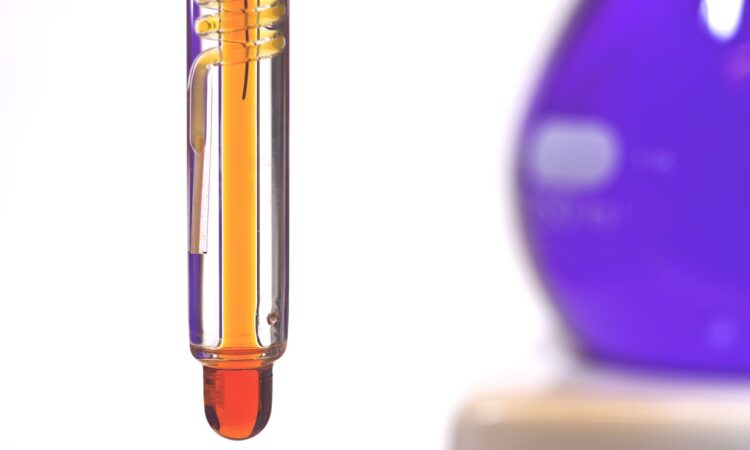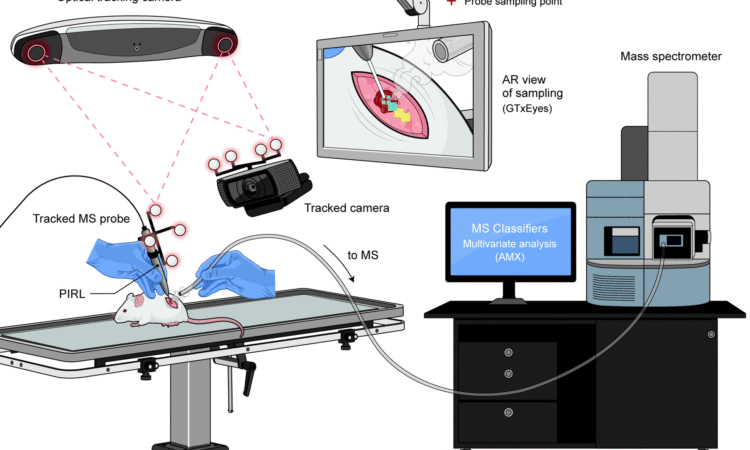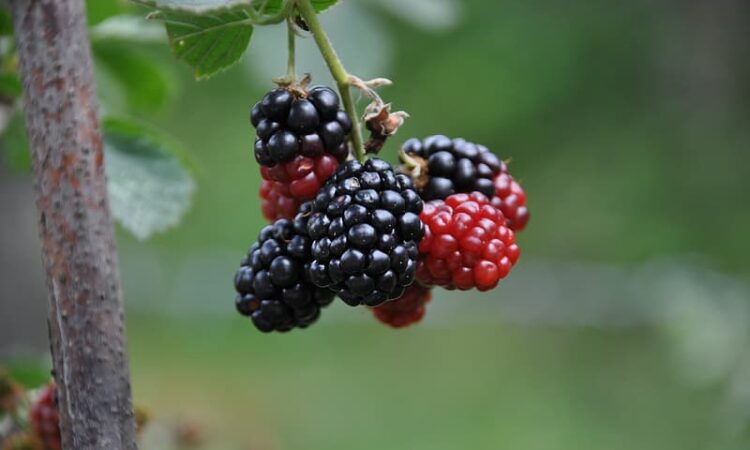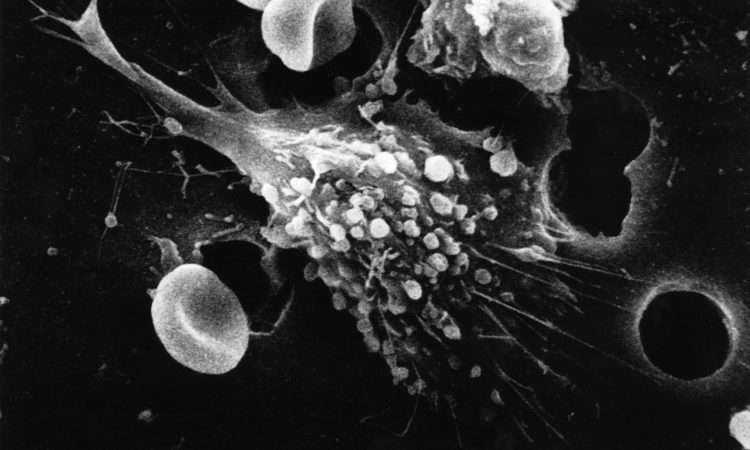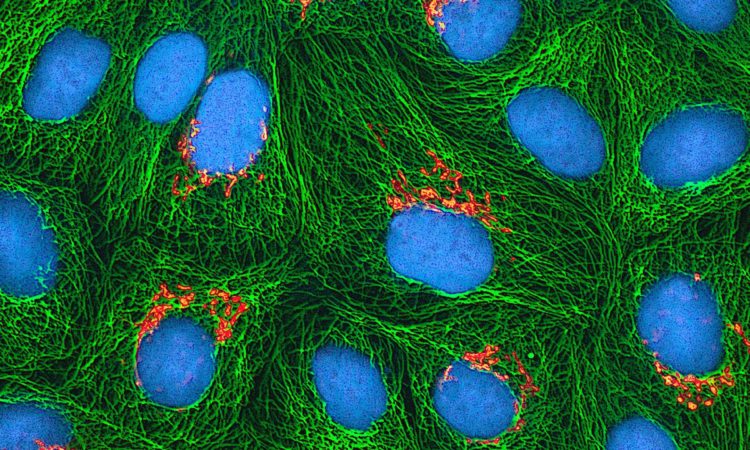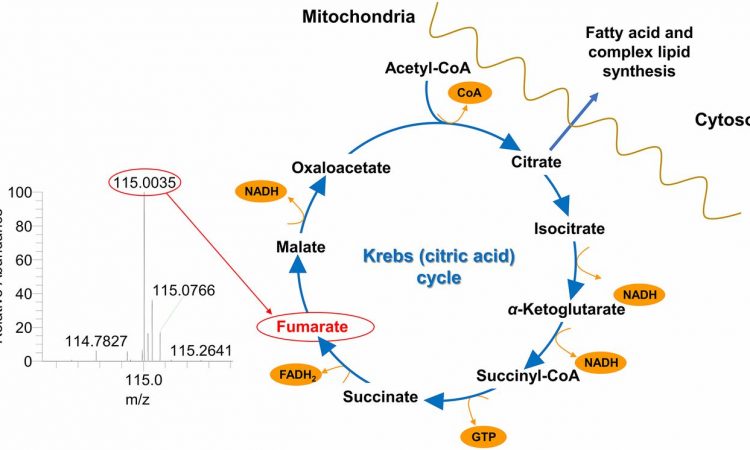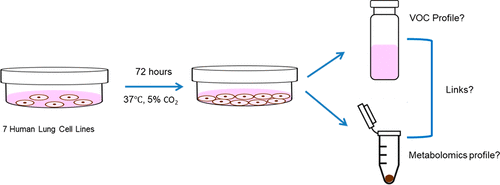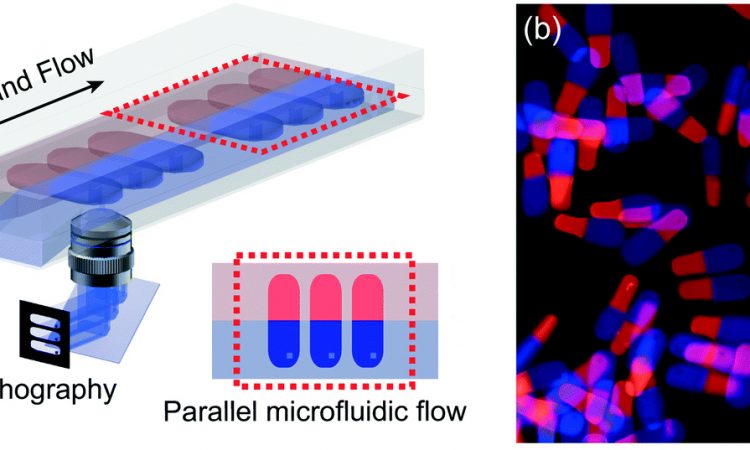Using DNA molecules to build cool structures for novel drugs.
GlycoRNAs Illuminated: Sugar-Coating the Story of Cancer Progression
Designing an Imaging Technique to Visualize Glycosylated RNAs in Cells.
Outsmarting the cancerous activity of cathepsin B with pH-selective peptides
Scientists showed that by modulating cathepsin B’s cleavage activity with pH-selective peptides, they can irreversibly and selectively stop its cancerous activity.
How augmented reality can improve tumour removal
Scientists developed a platform to assist cancer removal during surgery
Boiling mulberry juice increases its anti-cancer properties
Black mulberry juice is a known antioxidant – compounds that can consume free radicals before they can harm your cells. Researchers at Guangdong University also show that boiling mulberries increases its ability to treat colon cancer in cell culture, but not through antioxidant mechanisms.
Metal organic framework used to treat low-oxygen tumors
Cancerous tumors can often create areas of low oxygen concentration around them. This creates challenges for cancer treatments that rely on creating reactive oxygen species to damage tumor DNA. Research from the University of Chicago developed a metal-organic framework to help reverse hypoxia in cancerous tumors in mice.
Putting chemists out of business- the immunotherapy revolution
The development of chemotherapy revolutionised the treatment of cancer in the 20th century, however, side effects have remained problematic. Immunotherapy, using the body’s natural immune system to fight cancer, may be a safer and more effective alternative.
Seeing the Invisible
Ever wondered how scientists know what is going on inside a cell, or how you could design a chemical probe to tell you more? There’s a lot of things to consider, find out more here.
Treating Tumors with Cuttlefish Ink
Cuttlefish ink looks like a promising new treatment for tumors – with the help of nature’s nanoparticles!
Scanning for Skin Cancer
The idea that a full body scan can give comprehensive medical prognosis may be closer than we realize. Scanning mass spectrometry has been used to differentiate between healthy and cancerous skin cells. We can literally scan a person for skin cancer!
Detecting Lung Cancer with Molecules from Our Breath
It turns out that people with lung cancer may breathe out different molecules than people without. Scientists are figuring out which molecules to look for to diagnose cancer!
Targeting Cancer Cells with Different Drugs…in the Same Pill!
Tailoring treatment for a specific patient is the future of medicine. Let’s learn about making tiny pills that are “smart” enough to know where to dissolve in the body!
